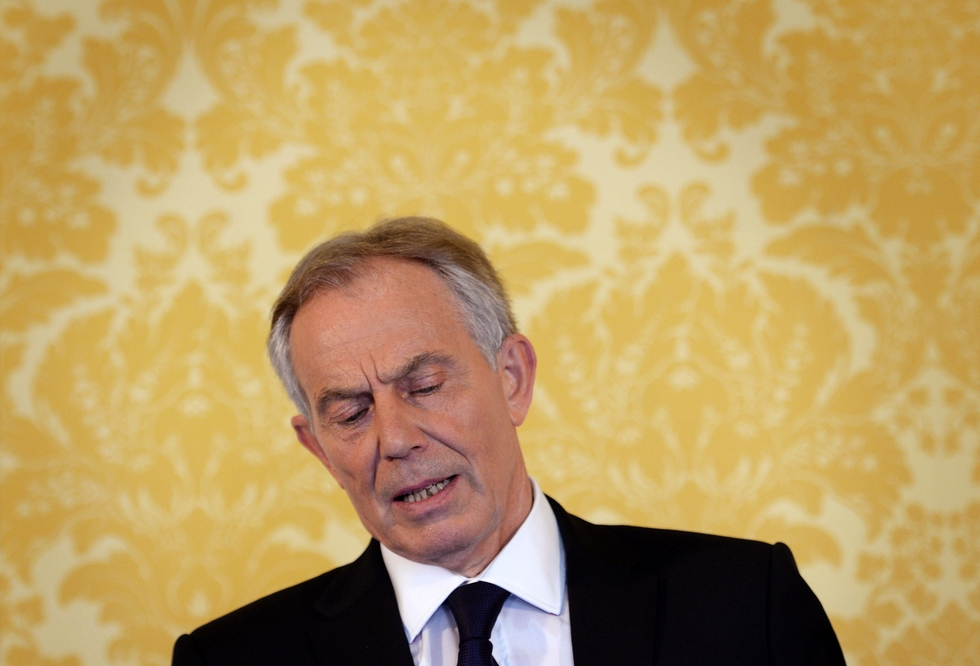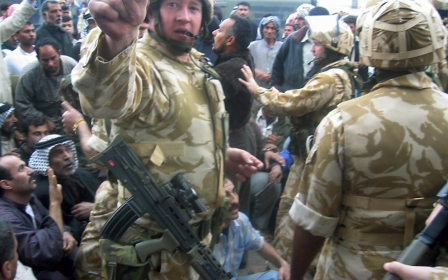Tony Blair could face censure vote in parliament over Iraq war

Tony Blair is set to face a humiliating “contempt of Parliament” motion, as British parliamentarians move to “deliver a verdict” on the Iraq war, it emerged on Sunday.
A veteran British politician is set to file a “contempt motion” on Thursday against the former prime minister, who took the country to war in Iraq in 2003 and faced widespread condemnation last week with the release of the long-awaited Chilcot report into the war.
Former Conservative leadership candidate David Davis told the BBC’s Andrew Marr programme that he wanted parliament to declare Blair in "contempt" for his role in taking Britain to war in Iraq.
Davis, who is considered a member of the Conservative “old guard” and voted for the invasion of Iraq in 2003, will put forward the motion on Thursday in an attempt to use parliamentary powers to strip Blair of his remaining ceremonial powers and to “deliver a verdict” for families of soldiers who lost sons and daughters in the nine-year-long conflict.
Davis said he will put forward a motion that says “Tony Blair held the House in contempt” over the conflict by lying to MPs during a key parliamentary debate on the eve of war in March 2003.
He said: “Blair says that Chilcot doesn’t say he is a liar, but Chilcot wasn’t asked to rule on that. He [Sir John Chilcot] was asked to rule on the causes of the war and the consequences of the war, not whether Tony Blair lied or not.
“Now, if you look just at the debate alone, there are five different grounds that the House was misled on: three in terms of the weapons of mass destruction, one in terms of the way the UN [Security Council] votes were going and one in terms of the threat [from Iraq].”
Davis said that he accepted one of these deceptions might have been “accidental” but, he said, the scale of deception showed that Blair had intentionally lied to parliament in the run-up to war.
Watchers of parliament say the motion from Davis is likely to be accepted this week and a vote on the issue could be held within two weeks.
Its impact will be mainly symbolic, and Blair cannot be compelled to face parliament, but if the motion passed he could be banned from holding public office in future and stripped of his ceremonial role on the Privy Council, the ancient panel of senior current and former politicians which advises the Queen on matters of state.
Davis is one of a number of MPs from several parties making the call. It comes on the same day that former Scottish first minister Alex Salmond said he would also table a motion this week calling on MPs to censure the former prime minister over the conflict.
The move to pass judgement on Blair comes as campaigners and politicians have been looking for parliamentary and legal methods to hold Blair to account in the wake of last week’s Chilcot report. They have had to look for alternative means after it became clear that the International Criminal Court in the Hague did not have a mandate to prosecute the former prime minister.
Further pressure was also heaped on Blair when - appearing after Davis on the BBC - Labour leader Jeremy Corbyn said he would vote for the motion. Corbyn opposed the war as a backbencher and last week took the unprecedented step of apologising for Labour’s role in the conflict, to the dismay of some in his party.
He told Marr: “Parliament must hold to account, including Tony Blair, those who took us into the particular war. I haven’t seen it [the contempt motion], I think I probably would [vote for it].”
Corbyn’s latest intervention comes a day after John Prescott, who was a deputy prime minister under Blair and a key adviser at the time of the war in 2003, said the invasion of Iraq by UK and US troops was illegal. He said: “As the deputy prime minister in that government I must express my fullest apology, especially to the families of the 179 [British] men and women who gave their lives in the Iraq War."
Parliament does not have the legal power to prosecute Blair for launching an “illegal war” said Davis, but he insisted there was precedent for using the “contempt of parliament method” in attempt to deliver a verdict.
He cited the infamous case of government minister John Profumo, who was held in contempt for lying to parliament after he had an affair with a 19-year-old women in 1963.
“That was just a sex scandal, not something that led to the deaths of hundreds of thousands of Iraqi people, with maybe millions dying as a consequence of the destruction of the Middle East,” said Davis.
New MEE newsletter: Jerusalem Dispatch
Sign up to get the latest insights and analysis on Israel-Palestine, alongside Turkey Unpacked and other MEE newsletters
Middle East Eye delivers independent and unrivalled coverage and analysis of the Middle East, North Africa and beyond. To learn more about republishing this content and the associated fees, please fill out this form. More about MEE can be found here.




